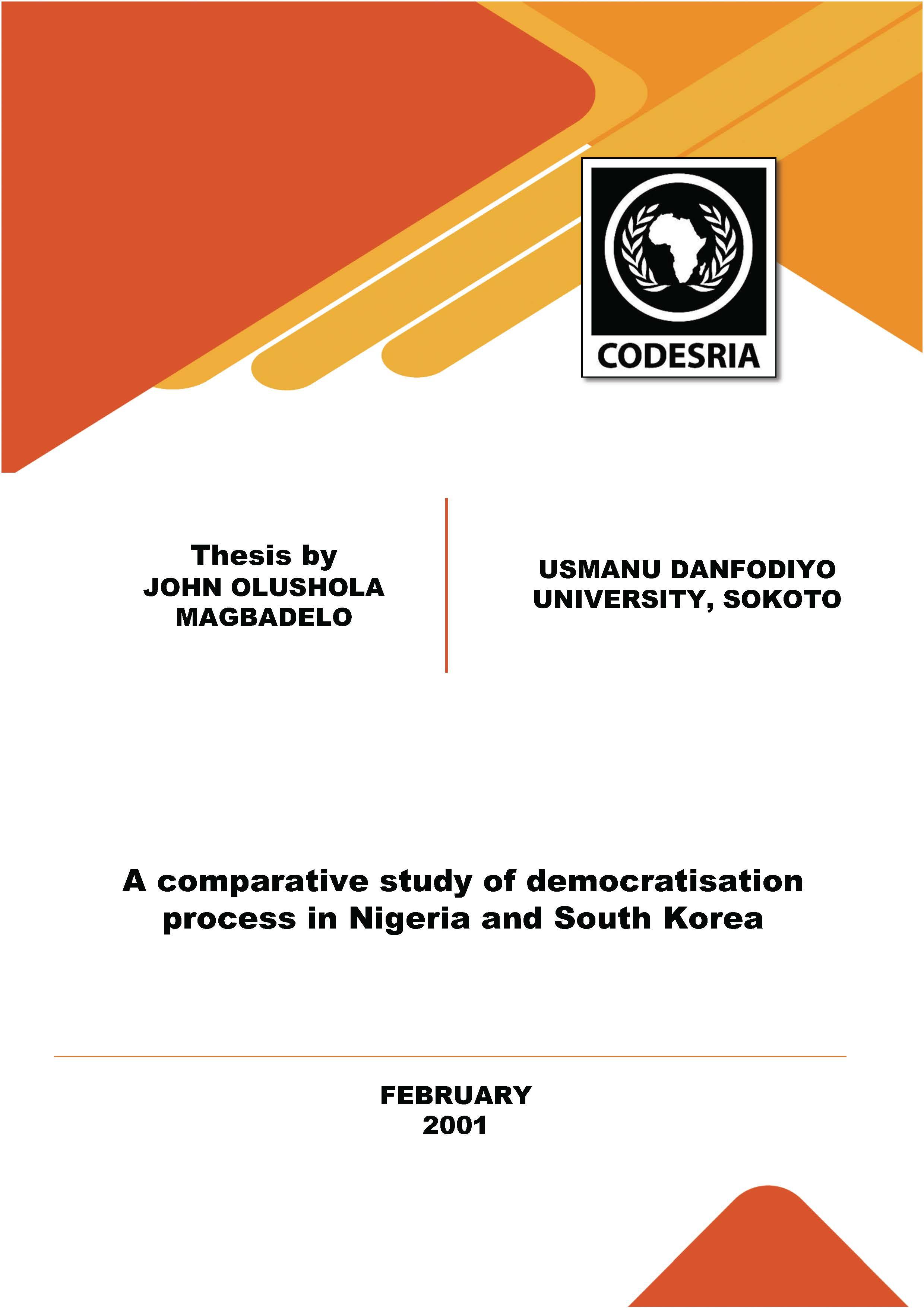A comparative study of democratisation process in Nigeria and South Korea
Keywords:
Democratization, international relations, politics, comparative analysis, civil society, ethnicity, military personnel, democratic transition, Nigeria, Korea RSynopsis
This thesis compares the democratisation process in Nigeria with the South Korean experience. The factors which facilitated
democratisation in the two countries and the effect of democratisation varied from one to another. The study utilised the structural determination theory to bring to fore the conditions which were instrumental in effecting democratic transition in South Korea, and increasing the fervour and agitation for democratisation in Nigeria. After an in-depth study of the causation and effects of democratisation in both countries, the conclusions drawn reflect to some extent the differences and similarities between Nigeria and South Korea. First, economic factors played a major role in both Nigerian and Korean democratisation. While economic development propelled the struggle for democracy in Korea, the lack of it fuelled anti-military andpro-democracy struggles in Nigeria. Secondly, ethnicity and regionalism were utilised by the authoritarian leaders to <livide the Civil Society and delay or abort the transition to democracy. In Nigeria, the abortion of the transition to democracy project under General Babangida had ethnie undertone. While in South Korea, regionalism delayed the transition to democracy.
Downloads
References
Hyug Baeg Im, "Politics of Democr tic Transition from Authoritarian Rule in Korea" in Sang-Yong Choi, (ed), Democracy in Korea: Its Ideas and Realities (Seoul, The Korean Political Science Association, 1997), pp.84 - 85.
Chang-Huh Oh, "The Institutional Basis of Democratisation in Korea", Korea Observer. , Vol.XXV II, No.4, ''inter, 1996, pp609-6 l 0, See also Robert A. Scalapino, Democratizing Dragons: South Korea and Taiwan," Jomnal of Democracy Vol.4, No.3, (July, 1993), pp.70-83.
Gregory Henderson,, Korea: The Politics of the Vortex (Cambridge Harvard University Press, 1968)
Byung-Joon, Ahn "Political Changes and industrialization m south Korea", Korean Social Science Journal , No. l 0, (1983),p.48
Ibid, pp.48-49; Peter R. Moody Jr, Political Opposition in Post Confucian Society (New York: Preager, 1988) p.115; Hak-kyu, Sohn, Authoritarianism and opposition in South Korea (London, Routlegde, 1989), p. I 8.
Sung-Joo, Han, The Failure of Democracy in South Korea (Berkeley, University of California Press, 1974) See also Sung-Joo, Han, South Korea; Politics in Transition", in Lany Diamond, Juan J. Linz and Seymour Martin Lipset (eds.), Democracy in Developing Countries : Asia (Vol.IJl), (Boulde1 : Co Lynne Riener Publishers, 1989) pp.270-
.
Chang-Huh, Oh, Op.cit, p618.
Hak-Kyu, Sohn, op.cit, p.21.
C.I. Eugene Kim, "The Value congruity of ROK civilian and Former Military party elites", Asian Survey, Vol.18, No.8, (August, 1978), p.84 J. See also C.I. Eugene Kim, "The South Korean military and Its Political Role" in Kim Iipyong, and Young Whan Kihl (eds), Political






